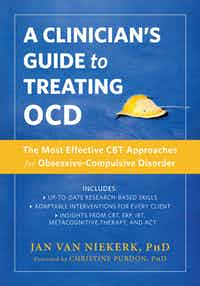Most clinicians never receive training on working with transgender and gender-nonconforming clients, and assume these clients will not show up in their practice. What this lack of exposure means for transgender and gender-nonconforming clients seeking mental health support, whether or not their concerns are related to gender, is being turned away, unable to identify access-affirming care.
We hope that all clinicians will commit to making their practices more trans-inclusive. Here are some quick tips to get started:
-
Know that there is a wide range of gender identities. Not everyone has a gender that is in line with how they appear or fits within the gender binary (man or woman). Instead of saying “both genders,” opt for the inclusive expression “all genders.”
-
Always use the name and pronouns (she/her/hers, they/them/their, he/him/his) that a client asks you to use for them, regardless of legal name or gender marker. When in doubt, ask:
- “What name do you go by?”
- “What are your pronouns?”
-
When you make a mistake, apologize promptly, correct the error, and move on. Refrain from going into explanations or excuses.
-
Change gender options on intake forms so that “Gender” is a fill-in rather than checkboxes. Example: “Gender: ________”
-
Refrain from using gendered terms of address if you do not know someone’s gender. Instead of saying “sir” or “ma’am,” try using the person’s first name, last name, or both.
-
Advocate for gender-neutral/inclusive restrooms in your office or work environment.
Making these changes will enrich not only your professional work, but your ways of relating to others on a personal level. We are excited for you to join us in growing your capacity to serve and support transgender and gender-nonconforming clients.
Book Titles: A Clinician’s Guide to Gender-Affirming Care
 Sand C. Chang, PhD, is a Chinese American nonbinary psychologist and trainer. They are the clinical practice consultant for Kaiser Permanente Northern California Transgender Services. They also have a private practice in Oakland, CA, specializing in trauma/EMDR, addictions, and eating disorders. Sand served on the task force that authored the 2015 APA Guidelines for Psychological Practice with Transgender and Gender Nonconforming Clients, and is past chair of the American Psychological Association (APA) Committee on Sexual Orientation and Gender Diversity (CSOGD). Outside of their professional work, Sand is a dancer, avid foodie, and pug enthusiast.
Sand C. Chang, PhD, is a Chinese American nonbinary psychologist and trainer. They are the clinical practice consultant for Kaiser Permanente Northern California Transgender Services. They also have a private practice in Oakland, CA, specializing in trauma/EMDR, addictions, and eating disorders. Sand served on the task force that authored the 2015 APA Guidelines for Psychological Practice with Transgender and Gender Nonconforming Clients, and is past chair of the American Psychological Association (APA) Committee on Sexual Orientation and Gender Diversity (CSOGD). Outside of their professional work, Sand is a dancer, avid foodie, and pug enthusiast.

 2024 Peace Playbook: 3 Tactics to Avoid Clashes with Your Partner
2024 Peace Playbook: 3 Tactics to Avoid Clashes with Your Partner